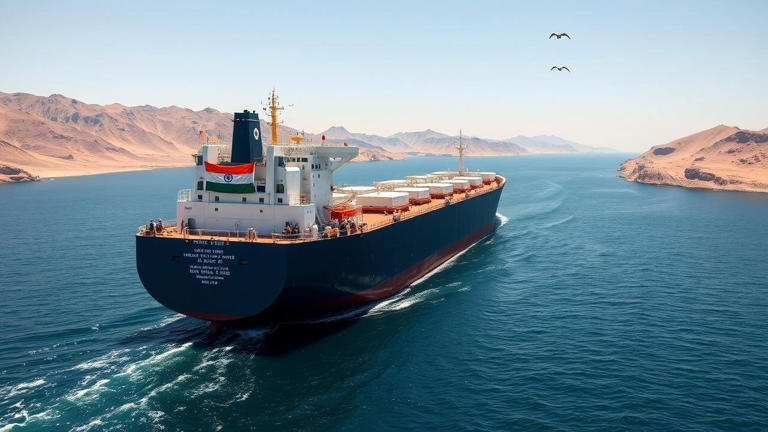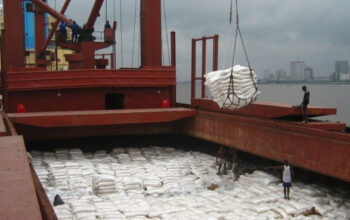By Staff Reporter
ISLAMABAD: Pakistan is mapping out backup plans for its oil imports as the Iran-Israel conflict puts the Strait of Hormuz, a lifeline for global crude, at risk of closure.
The government denies fuel rationing is on the table and says stocks are solid, but it’s already warning of steeper pump prices ahead.
“Today, we assessed the potential challenges that could arise if the Strait of Hormuz is closed,” said Federal Petroleum Minister Ali Pervaiz Malik. “The government will make all-out efforts to maintain the supply chain of petroleum products.”
The strait, a narrow choke point between the Gulf and the Arabian Sea, carries about 20% of the world’s daily oil, per Vortexa data. Iran, fuming over U.S. and Israeli strikes on its nuclear sites, has hinted at shutting it down, a threat that’s rattling energy markets.
Iran’s parliament on Sunday approved the closure of the Strait of Hormuz, according to a report from Iran’s state-owned Press TV. The decision to close the waterway now rests with the country’s national security council, and its possibility has raised the specter of higher energy prices and aggravated geopolitical tensions.
The Strait of Hormuz serves as a crucial export route for oil from Saudi Arabia, the UAE, Iran, Kuwait, and Iraq, and for LNG from Qatar. On the receiving end, the oil primarily supplies Asian countries, notably China, India, Japan, Pakistan and South Korea, which dominate the import market, followed by the United States and, to a lesser extent, Europe and other regions.
“We’re tracking petroleum supplies day by day,” said Minister Malik, who’s banking on cooler heads prevailing in the Middle East. “If the strait closes, we’ve got plans ready.”
He dismissed talk of rationing, stressing that Pakistan’s fuel tanks are full enough and oil firms haven’t been told to cut sales. We’ll do whatever it takes to keep fuel moving,” Malik said.
State Minister Bilal Azhar Kayani doubled down, calling shortage rumors “baseless” and insisting the government’s geared up for any curveballs. “The Prime Minister’s Office, Ministry of Petroleum, and Ministry of Finance are continuously monitoring the petroleum situation,” Kayani said. “We are fully prepared to address any uncertainties.”
The Oil and Gas Regulatory Authority (OGRA) reported petrol reserves sufficient for about 22 days and diesel for 32 days, with daily usage averaging 24,000 metric tons of petrol and 18,000 metric tons of diesel. OGRA added that fuel imports continue on schedule, with no directives issued to restrict supply.
Yet, higher pump prices loom on the horizon. Arif Habib Limited, a top Karachi brokerage, forecasts diesel could leap 10.4% to 289.93 rupees per liter and petrol 8.3% to 279.92 rupees in the next fortnightly review on June 30. The projected hikes stem from a spike in global oil prices since the conflict ignited on June 13.
Brent crude, the international benchmark, scaled a five-month peak of $81.40 per barrel on Monday, while West Texas Intermediate hit $78.40. Both later trimmed gains but closed up 1%. The rally reflects growing unease that Iran, OPEC’s third-largest crude producer, might choke off the Strait of Hormuz.
Pakistan adjusts fuel prices biweekly based on global trends and exchange rates. The last increase came on June 15, lifting petrol to 258.43 rupees per liter from 253.63 and diesel to 262.59 rupees from 254.64.
Malik stressed that the government raised prices reluctantly, forced by international market pressures. “The fuel prices were not increased willingly,” he said.
The Middle East crisis escalated over the weekend when U.S. President Donald Trump declared American forces had “obliterated” Iran’s primary nuclear sites. Israel piled on with strikes targeting Tehran and the Fordow nuclear facility on Monday. Iran pledged self-defense and cautioned that the U.S. assault had broadened its roster of “legitimate targets.” China condemned the U.S. move, warning it undermined Washington’s credibility and risked letting the situation spiral “out of control.”
Copyright © 2021 Independent Pakistan | All rights reserved




